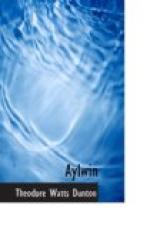But I am now going to touch upon a much more important medical subject. Since the appearance of Aylwin, I have received many letters enquiring whether the transmission of hysteria from one patient to another by means of a magnet is an imaginary experiment, or whether it is based on fact. It has been impossible for me to answer all these letters. But some of them, coming from loving relatives of those who have suffered from hysteria, have been couched in such earnest and pathetic words that they could not be left unanswered, and this has caused me great inconvenience. I have therefore determined to give the reader some tangible data upon this subject. The extract from the Daily Telegraph which appears on page 465 is a real extract, and records a real case of transmission of hysteria. Upon the same subject I take the following admirable remarks from an article in the Quarterly Review for July 1890, called ‘Mesmerism and Hypnotism.’
The Influence of Magnets.—We have briefly referred to the action of magnets on the muscles in speaking of the physiological phenomena, but they possess other properties which hardly come under that head. They have the power of attracting hypnotised subjects. Thus, if a good-sized magnet is placed at some little distance from the subject, and behind a screen so that he cannot see it, after a time he will get up and go towards it. If now another magnet be placed at an equal distance behind him, he will stop and remain as it were balanced between the two. By withdrawing one or other he can be drawn backwards or forwards. Further, he can be charged with magnetism by placing near him a large magnet with five ends. If it be suddenly removed and hidden in another room, he is impelled to follow it with such force that he will fling aside all obstacles in his way, and tracking it step by step will walk straight up to it. ’Once he sights it, he either remains in dumb contemplation of it in front of its two poles, or else lays his hands on both of the poles with a kind of profound satisfaction.’ These experiments with magnets are very exhausting.
* * * * *
Finally, if the senses can be so heightened as in the cases already cited from Braid and the clinique of La Salpetriere, it requires no great stretch of imagination to suppose them carried still further until they become comparable to those inexplicable faculties which we call instinct in animals, that for instance by which animals—cats, dogs, and sheep—can find their way home, sometimes over hundreds of miles of unknown country.




